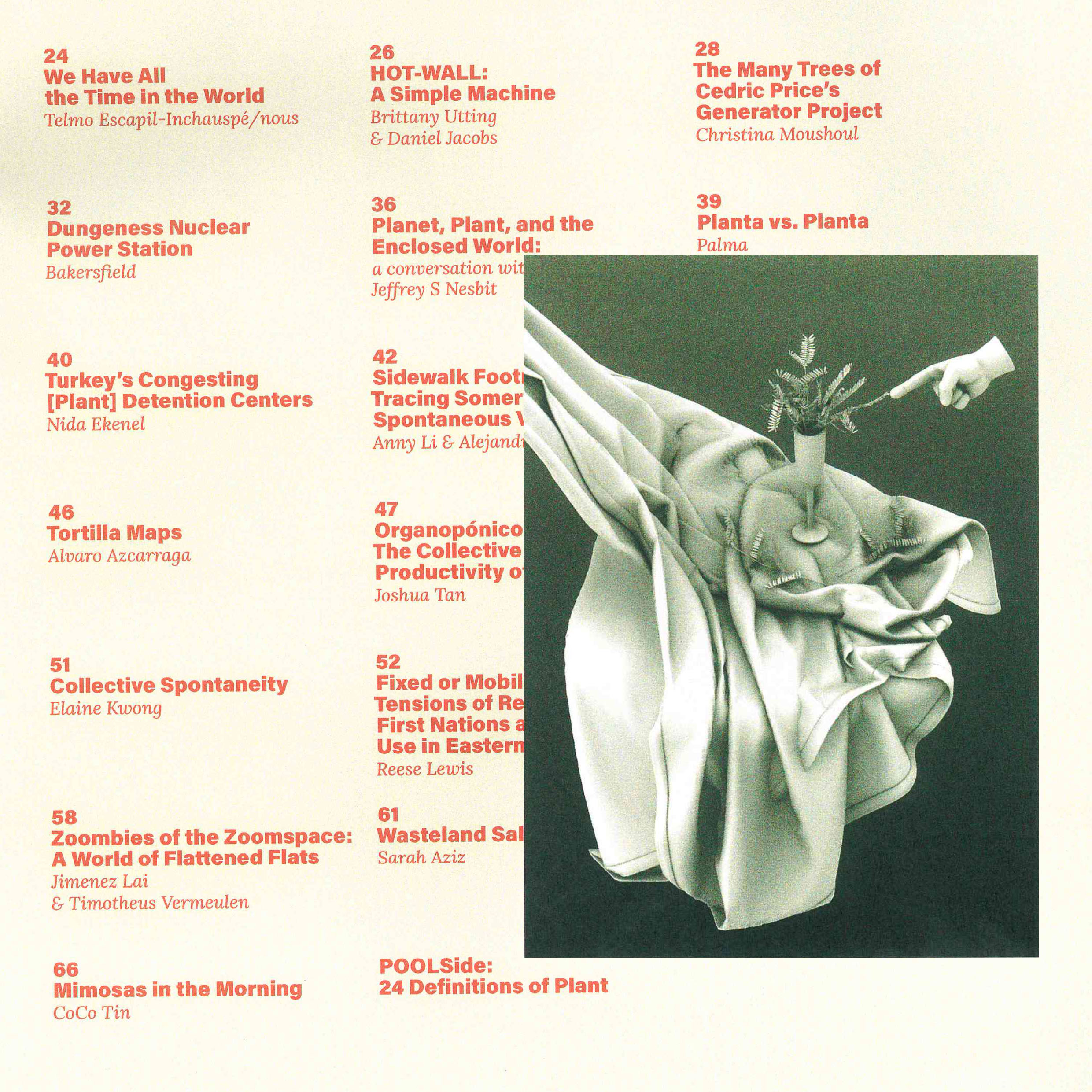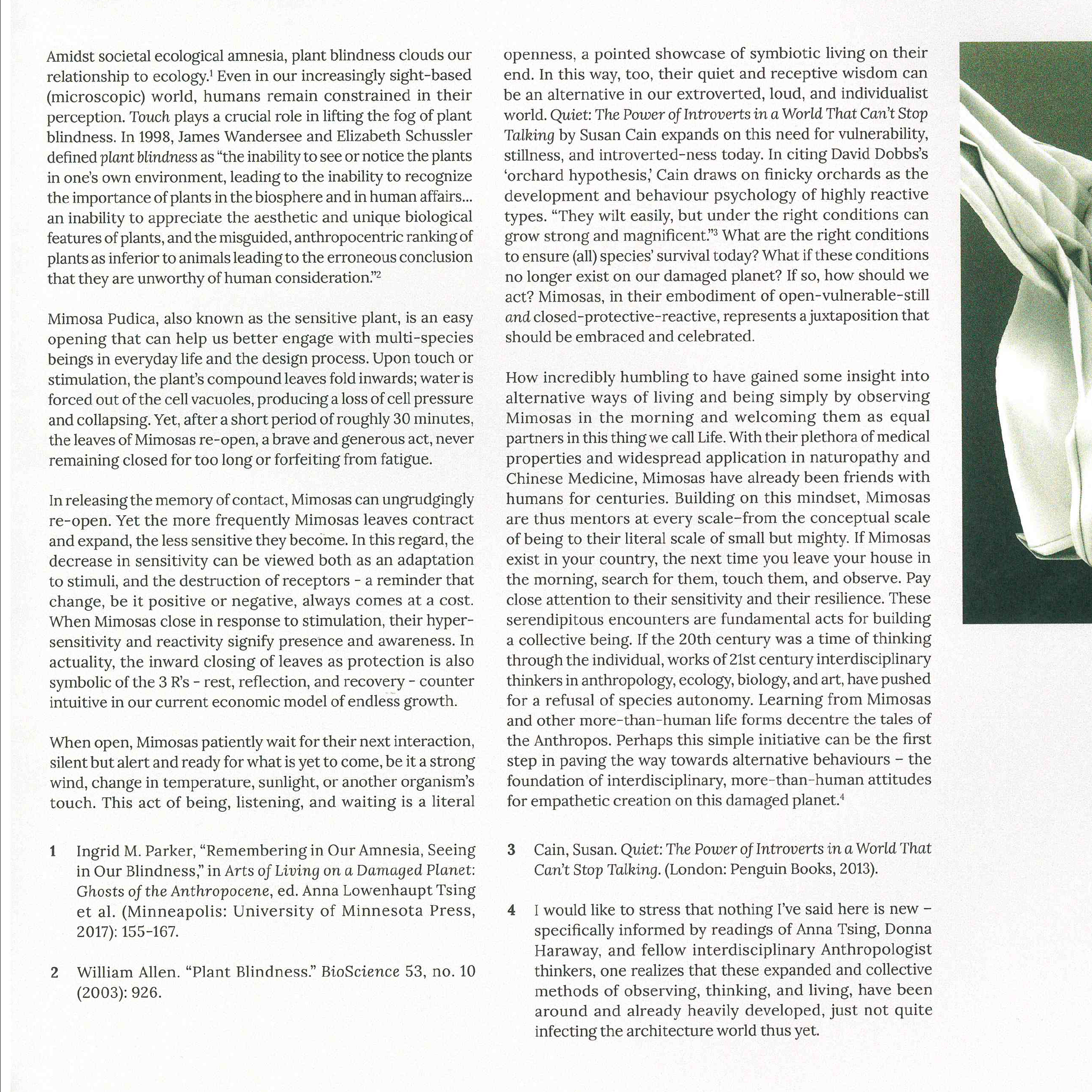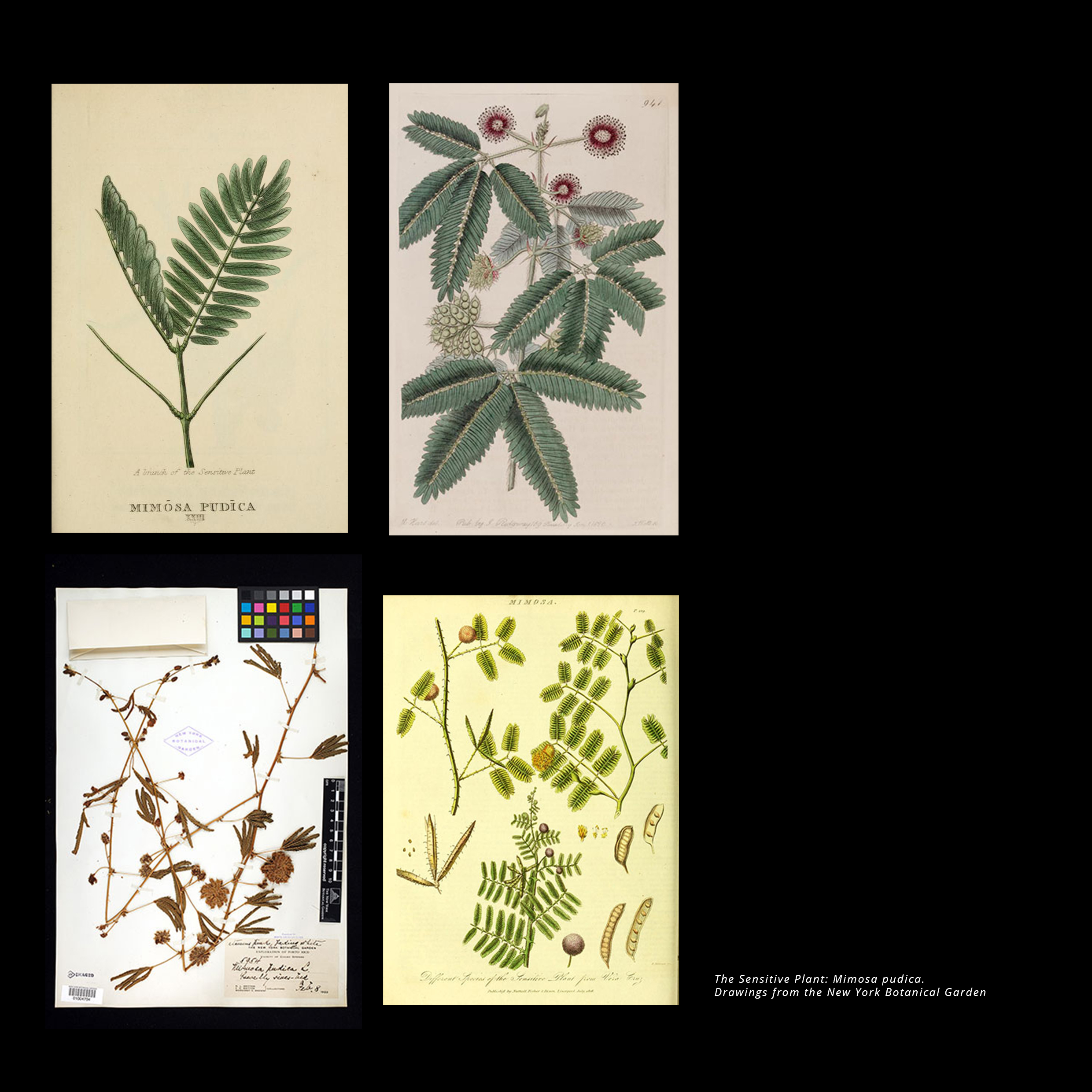Mimosa Pudica, also known as the sensitive plant, is an easy opening that can help us better engage with multi-species beings in everyday life and the design process. Upon touch or stimulation, the plant’s compound leaves fold inwards; water is forced out of the cell vacuoles, producing a loss of cell pressure and collapsing. Yet, after a short period of roughly 30 minutes, the leaves of Mimosas re-open, a brave and generous act, never remaining closed for too long or forfeiting from fatigue.
Amidst societal ecological amnesia, plant blindness clouds our relationship to ecology.1 Even in our increasingly sight-based (microscopic) world, humans remain constrained in their perception. Touch plays a crucial role in lifting the fog of plant blindness. In 1998, James Wandersee and Elizabeth Schussler defined plant blindness as ‘the inability to see or notice the plants in one’s own environment, leading to the inability to recognize the importance of plants in the biosphere and in human affairs... an inability to appreciate the aesthetic and unique biological features of plants, and the misguided, anthropocentric ranking of plants as inferior to animal, leading to the erroneous conclusion that they are unworthy of human consideration’.2
1 Ingrid M. Parker, “Remembering in Our Amnesia, Seeing in Our Blindness,” in Arts of Living on a Damaged Planet: Ghosts of the Anthropocene, ed. Anna Lowenhaupt Tsing et al. (Minneapolis: University of Minnesota Press, 2017), pp. 155-167.
2 William Allen. "Plant Blindness." BioScience 53, no. 10 (2003): 926.
Amidst societal ecological amnesia, plant blindness clouds our relationship to ecology.1 Even in our increasingly sight-based (microscopic) world, humans remain constrained in their perception. Touch plays a crucial role in lifting the fog of plant blindness. In 1998, James Wandersee and Elizabeth Schussler defined plant blindness as ‘the inability to see or notice the plants in one’s own environment, leading to the inability to recognize the importance of plants in the biosphere and in human affairs... an inability to appreciate the aesthetic and unique biological features of plants, and the misguided, anthropocentric ranking of plants as inferior to animal, leading to the erroneous conclusion that they are unworthy of human consideration’.2
1 Ingrid M. Parker, “Remembering in Our Amnesia, Seeing in Our Blindness,” in Arts of Living on a Damaged Planet: Ghosts of the Anthropocene, ed. Anna Lowenhaupt Tsing et al. (Minneapolis: University of Minnesota Press, 2017), pp. 155-167.
2 William Allen. "Plant Blindness." BioScience 53, no. 10 (2003): 926.



